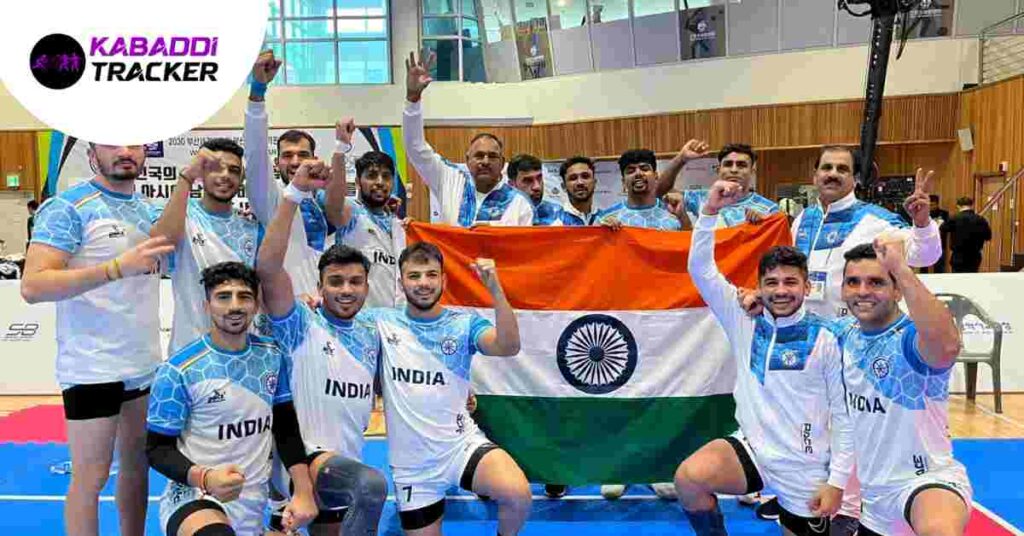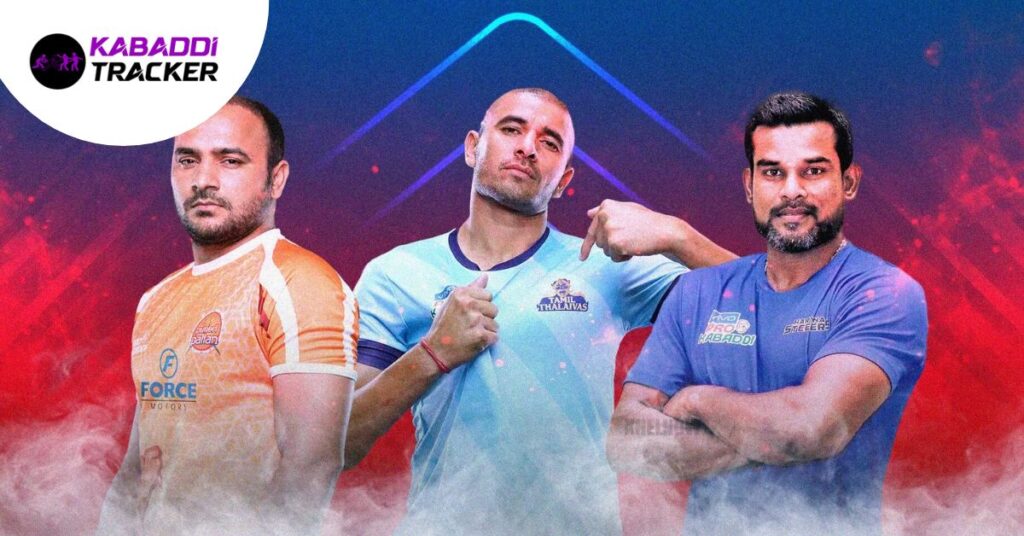Kabaddi, a sport that encapsulates both strategy and physical prowess, has enjoyed a rich history across various countries. Originating in ancient India, this contact team sport has evolved over the years and garnered a devoted following in diverse corners of the world.
As the world’s sporting landscape evolves, enthusiasts and athletes alike have pondered over the question: Has Kabaddi ever been played in the Olympics?
In this article, we delve into the global presence of Kabaddi and its Olympic aspirations, exploring the sport’s journey from its traditional roots to its potential on the grandest international stage.
Kabaddi’s Global Reach
Kabaddi, often described as a combination of tag and wrestling, has deep-rooted origins in India. Historically, it was played by villagers as a means of physical exercise and mental acumen. However, the sport’s appeal transcended geographical boundaries, and it soon began to captivate audiences beyond its birthplace.
Also Read – What Are Kabaddi Rules?
Today, Kabaddi is played in numerous countries, each embracing the game with its unique cultural nuances.
One of the primary reasons for Kabaddi’s global expansion is its straightforward nature. Unlike some complex team sports, Kabaddi requires minimal equipment and can be played on various terrains.
Its simplicity and inclusiveness have contributed to its popularity in countries like Iran, Bangladesh, Pakistan, and Nepal, where it has attained the status of a national sport.
Kabaddi’s Global Presence

- India Kabaddi Team: The birthplace of Kabaddi, India has a thriving Kabaddi ecosystem. The Pro Kabaddi League, launched in 2014, played a pivotal role in elevating the sport’s visibility. It showcased skilled athletes and attracted a massive television audience.
- Pakistan Kabaddi Team: Kabaddi enjoys immense popularity in Pakistan, where it is known as “Circle Style” Kabaddi. The country has its own professional league and has produced numerous skilled players who have competed on the international stage.
- Iran Kabaddi Team: Iran has emerged as a force to be reckoned with in the world of Kabaddi. The national team has consistently performed well in international competitions, showcasing the sport’s global appeal.
Also Read – What is the weight limit of Kabaddi Players - Bangladesh Kabaddi Team: Kabaddi is deeply ingrained in Bangladeshi culture. The country boasts a robust domestic league and has produced exceptional players who have competed internationally.
- Nepal Kabaddi Team: In Nepal, Kabaddi is immensely popular in schools and local communities. The sport has seen support from grassroots organizations, contributing to its growth and popularity.
- United States and Canada Kabaddi Team: Kabaddi has even crossed over to North America, where South Asian communities have established leagues and tournaments, promoting the sport within their diaspora.
- United Kingdom Kabaddi Team: With a significant South Asian population, the UK has witnessed the emergence of Kabaddi as a community-driven sport, played at both recreational and competitive levels.
- Australia Kabaddi Team: The sport has found a home in the vibrant South Asian communities of Australia, with regular tournaments attracting players and spectators alike.
Olympic Aspirations: Has Kabaddi Ever Been Played in the Olympics?

While Kabaddi has been embraced by many countries, the question of its inclusion in the Olympic Games remains unanswered. As of my knowledge cutoff in September 2021, Kabaddi has not been featured in the Olympic program.
This lack of Olympic recognition has led to discussions and debates among Kabaddi enthusiasts, athletes, and officials about whether the sport deserves a place on the global stage alongside other disciplines.
The absence of Kabaddi from the Olympics can be attributed to several factors. The International Olympic Committee (IOC) evaluates various criteria when considering the inclusion of a new sport, including its global reach, popularity, gender equality, and overall appeal.
While Kabaddi certainly ticks the boxes for popularity and global reach, there might be challenges related to standardization of rules, doping control, and infrastructure that need to be addressed before it can make its Olympic debut.
Challenges and Opportunities for Olympic Inclusion
While Kabaddi’s global presence is undeniable, its path to Olympic inclusion presents challenges that need to be addressed. Standardization of rules, anti-doping measures, and infrastructure development are critical aspects that the sport’s governing bodies must work on to align with the IOC’s criteria for new sports.
- Rules Standardization: Different countries have their variations of Kabaddi, which might create challenges in terms of uniformity if the sport were to be included in the Olympics. Establishing standardized rules that are accepted internationally would be a crucial step.
- Anti-Doping Measures: The Olympic Games uphold stringent anti-doping protocols. Ensuring that Kabaddi’s anti-doping measures are in line with the IOC’s standards is essential for the sport’s credibility on the Olympic stage.
- Infrastructure Development: Hosting an Olympic event requires top-notch infrastructure, including playing venues, accommodations, and facilities for athletes and spectators. Developing such infrastructure for Kabaddi in various host countries could be a significant undertaking.
- Global Promotion: For Kabaddi to secure a place in the Olympics, global promotion and awareness-building efforts must continue. International governing bodies need to collaborate to enhance the sport’s visibility and popularity.
The Road Ahead: Kabaddi’s Olympic Dream
As of my last knowledge update in September 2021, Kabaddi has not been featured in the Olympic Games. However, the sport’s enthusiasts remain optimistic about its prospects. The International Kabaddi Federation (IKF) has been actively promoting the sport’s growth and development worldwide.
The inclusion of Kabaddi in the Olympics would not only provide a platform for the sport’s elite athletes but also promote cultural exchange and understanding among nations.
The success stories of sports like rugby sevens, which were included in the Olympic program in 2016, offer a glimmer of hope for Kabaddi’s Olympic aspirations. The key lies in continued collaboration between international Kabaddi bodies, national federations, and the IOC to address the challenges and create a compelling case for Kabaddi’s inclusion.
Kabaddi’s journey from its origins as a village sport to a global phenomenon is a remarkable testament to its universal appeal. The sport’s ability to transcend cultural barriers and attract enthusiasts from various corners of the world is a testament to its unique charm.
While Kabaddi’s inclusion in the Olympics is yet to be realized, the sport’s continued growth, international competitions, and passionate fanbase make it a strong contender for Olympic recognition.
As the sporting world continues to evolve, embracing diverse disciplines and celebrating the global tapestry of athleticism, Kabaddi’s Olympic dream might not be too distant.
Whether or not Kabaddi steps onto the Olympic stage, its rich heritage and global impact ensure that it will continue to captivate hearts and minds worldwide.





